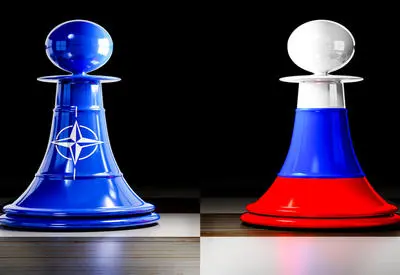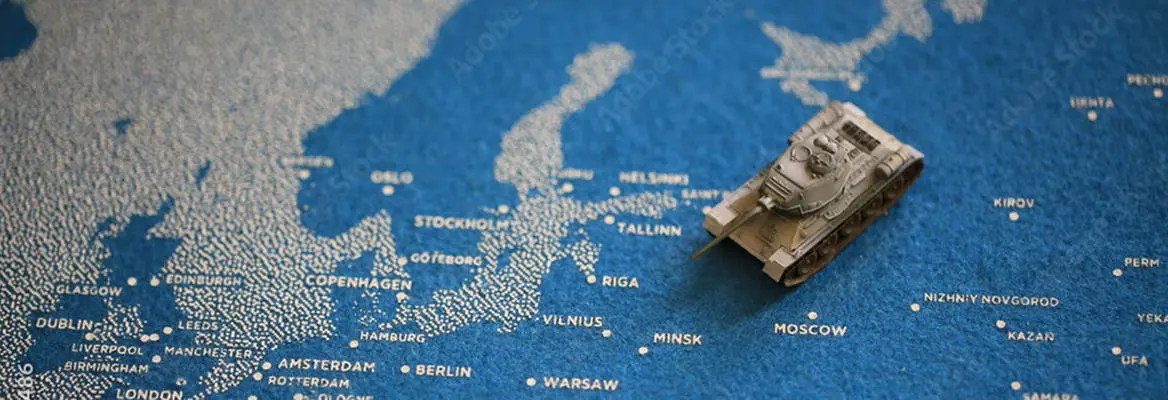NATO was proclaimed brain-dead only three years ago by France’s President. Now it seems resurrected. Key member states like the USA and Britain have rallied around Ukraine, arming its resistance against Russia. Finland and Sweden are on course to join the alliance, creating a NATO boarder with Russia. Putin meanwhile has retreated from his original ambitions in Ukraine. It might seem like the West is winning. This thinking is dangerously close to wishful thinking. The contingencies of war and Russia’s willingness to keep the military conflict going mean nothing is decided yet. With China on its mind and resources that won’t stretch between two oceans, NATO needs to decide what a satisfactory victory in Ukraine would amount to before some of its thirty members grow tired, writes Hew Strachan.
NATO has staged a remarkable recovery since Russia invaded Ukraine on 24 February 2022. In 2014 it effectively condoned Russian aggression. In 2016 the United States elected a President who regarded its European members as free-loaders, dependent on American security. In 2019 the President of France described NATO as brain dead. In 2021 it was missing in action as Kabul fell. Unsurprisingly, Putin was not deterred by the threat of western sanctions in 2022. When they came, the sanctions failed twice over, neither preventing Russia’s offensive nor halting it once it was under way.
___
War, more than any other form of political activity, exists in the realm of contingency. Hopes and aspirations must be tempered by reality
___
 SUGGESTED READING
Only neutrality can solve the geopolitical deadlock
By Alexander Korolev
Today the situation seems much rosier. Germany, the latent European hegemon within the alliance, has added 100 billion euros to its defence budget. Finland and Sweden, militarily resilient and strong-minded states, have broken their long-standing ambivalence and applied to join. Member states have come together to equip Ukraine’s armed forces and to welcome its refugees. NATO’s confidence has grown as the weeks have passed. Some members have abandoned their fear that the war might escalate if they were too open in their support. Britain and the United States no longer worry whether the weapons they provide have offensive as well as defensive capabilities. Putin has done little in response. He has rattled his nuclear sabre but done nothing to give effect to his rhetoric. Instead he has scaled back his invasion, matching its ambition to the limitations of his armed forces. The result is not manoeuvre on multiple fronts but tactical battle of attrition in Donbas. NATO’s resurgence and Putin’s retreat can give the impression that this war will end with Russia defeated and victory for Ukraine and NATO. But the danger of wishful thinking is lurking in the background. Ukraine has sustained significant losses, and Russia is unlikely to back down from the conflict empty-handed. NATO needs to decide what a victory against Russia would actually amount to.
SUGGESTED READING
Only neutrality can solve the geopolitical deadlock
By Alexander Korolev
Today the situation seems much rosier. Germany, the latent European hegemon within the alliance, has added 100 billion euros to its defence budget. Finland and Sweden, militarily resilient and strong-minded states, have broken their long-standing ambivalence and applied to join. Member states have come together to equip Ukraine’s armed forces and to welcome its refugees. NATO’s confidence has grown as the weeks have passed. Some members have abandoned their fear that the war might escalate if they were too open in their support. Britain and the United States no longer worry whether the weapons they provide have offensive as well as defensive capabilities. Putin has done little in response. He has rattled his nuclear sabre but done nothing to give effect to his rhetoric. Instead he has scaled back his invasion, matching its ambition to the limitations of his armed forces. The result is not manoeuvre on multiple fronts but tactical battle of attrition in Donbas. NATO’s resurgence and Putin’s retreat can give the impression that this war will end with Russia defeated and victory for Ukraine and NATO. But the danger of wishful thinking is lurking in the background. Ukraine has sustained significant losses, and Russia is unlikely to back down from the conflict empty-handed. NATO needs to decide what a victory against Russia would actually amount to.
Perceptions and realities of the war
There are those who are already claiming that Russia has lost the war. It has forfeited trust and was condemned by a majority of the United Nations General Assembly. Its armed forces have reached their limits in terms of manpower and equipment, and the sanctions will take an increasing toll. If Russia abandons its ‘special military operation’ in favour of general mobilisation for war, it may face domestic opposition. These optimists anticipate Putin’s fall and the emergence of a chastened Russia which will finally accept its post-1991 borders, so delivering victory not only for Ukraine but also for NATO.





















Join the conversation